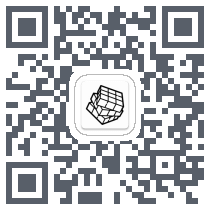How to embrace emotions at work
office and turn your emothions off. Feeling feelings is part of being human.
A pervasive myth exists that emotions don't belong at work, and this often leads us to
mistakenly equate professionalism with being stoic or even cold.
But research shows that in the moments when our colleagues drop their glossy professional
presentation, we're actually much more likely to believe what they'er telling us.We feel
connected to the people around us.
We try harder, we perform better and we're just generally kinder. So it's about time that
we learn how to embrace emotion at work.
That's not to say you should suddenly become a feelings fire hose. A line exists between
sharing, which buildstrust, and oversharing, which destroys it.
If you suddenly let your feelings run wild at work and give people far more information
than they bargined for, you make everyone around you uncomfortable and you also
undermine youself. You're more likely to be seen as weak or lacking self awareness, so,
great to you weren't feeling well last night -- you don't need to go into evey lurid
detail about how you got reacquainted with your half-digested dinner.
So there's a wide spectrum of emotional expression. On one hand, you have
unfer-emoters, or people who have a hard time talking about their feelings, and on the
other end are over-emoters, those who constantly share everything that's going on
inside, and neither of these make for a healthy workplace.
So what's the balance between these two extremes? It's something called
selective vulnerability. Selective vulnerability is opening up while still prioritizing
stability and psychological safety, both for you and your colleagues. Luckily, anyone
can learn to be selectively vulnerable, with practice.
Here are four ways to get started. First, flag your feelings without becoming
emotionally leaky. Bad moods are contagious, and even if you're not vocalizing
what you're feeling, chances are your body language or your expressions are
a dead giveaway.
So if you are crossing your arms or hammering on your keyboard, your coworkers
are going to know you're upset. And if you don't say anything, they might start to
think you it's about them and get worried. So if you are reacting to a none-work-
related event, so traffic for example, just flag it.
You don't need to go into detail. You can say something as simple as "I'm having
a bad morning. It has nothing to do with you." Now if it's a work-related event that's
causing you to feel strong emotions, that brings us to point number two.
Try to understand the need behind your emothion, and then address that need.
If you suddenly start to find everyone around you irritating, sit back and reflect on
that. And it might be that you're irratable because you're anxious, and you're anxious
because you're worried about hitting a looming deadline.
And in that case, you can go back to your team to address that need and say something
like, "I want to make sure I get everything done ahead of the deadline. Can you help me
put together a realistic plan to do that?" If you thinking of sharing, try and put
yourself in the other person's shoes. So if what you're about to say would help you feel
more supported and better understand the situation, then go ahead and share it. But
if it gives you any kind of pause, you might want to leave it out.
And finally, read the room and provide a path forward. If everyone on your team has been
pulling long hours, and you notice that one of your colleagues seems particularly deflated
or anxious, you can acknowledge that and show some empathy, but then try to give them
something actionable that they could hold on to. And in this case, you could suggest that
you go to your manager and ask that your weekly meeting be pushed back a day so you
both have more time to work. You're showing you're invested in their success, but also
that you care about their well-being.
When we can be honest about what wo feel, and freely suggest ideas, make mistates and
just not have to hide every piece of who we are, we're much more likely to stay at the
company for a long time. We're also happier and more productive.
So take a moment to reflect on the emothional expression that you bring to work each
day. And if you are prone to oversharing, try editing.
And if you're a little bit more reserved, look for moments when you can open up to
your colleagues and be a bit vulnerable. And chaces are, there will be a big difference
in how people respond to you. And selective vulnerability might just become one of
your most valuable tools.



